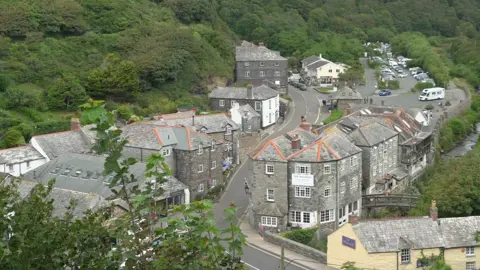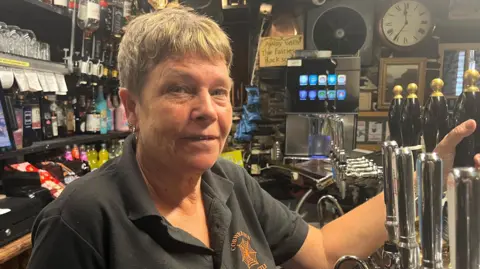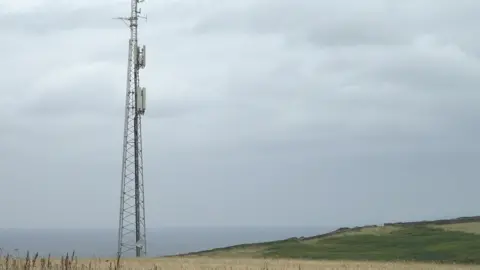Concerns over digital landline switch in Boscastle
 BBC
BBCA switch to digital landlines risks leaving villagers cut off in the event of a power cut, residents have said.
Telecoms companies are phasing out the analogue telephone service across the UK and the change means mains power is needed to make a call.
Twenty years ago when devastating floods hit Boscastle in north Cornwall, mobile phones were not working so people used landlines to call for help.
Some villagers have warned without better power resilience the community would be left unable to make calls if an emergency happened again.

About 100 people were airlifted to safety after the flash flood hit the Cornish village on 16 August 2004.
The main bridge in the village had become blocked by debris from the River Valency. When the wall of water, sparked by a freak rainstorm on higher ground, reached the blockage the rivers Valency and Jordan were unleashed on Boscastle.
Sasha Forsyth, who works at The Riverside hotel and restaurant in the village, said she was worried what would happen if there was another flood.
"We'd go to the phone and the power would be down, no connection. I wouldn't be able to ring anyone," she said.
"My back-up would be to go to the mobile phone and the mast would be cut off as well, so I would have no mobile reception and no back-up plan at all."
'No way to contact'
At The Cobweb Inn, landlady Tracy Bright said electricity to the village and its only mobile mast was cut when a high voltage cable caught fire in July.
Anyone with the new digital service or a mobile phone could not make calls so they had to drive out of the village to connect to a working mobile mast, she said.
"When the power goes down, we have nothing, no way of contacting anybody," she explained.
"So any accidents or any injuries, we can't make contact to report it. It's quite scary.
"We have a lot of retired people at the top of the village and I don't think they quite realise that when we have no power, you can't pick up the phone and call an emergency number."

The digital rollout by January 2027 is part of a nationwide scheme run by phone providers.
It means landline calls will be made using Voice over Internet Protocol (VoIP), which uses a broadband connection.
The providers say the old analogue system is becoming outdated and expensive to maintain and the new lines will give clearer calls.
BT is the telecoms provider for The Riverside and The Cobweb Inn in Boscastle, and provides EE mobile services.
The company said in a statement it was expanding the number of mobile network sites with back-up generators and holding more than 30 events across the South West during September for customers to ask questions about the digital switchover.
"In the case of Boscastle, we've spoken to the customers concerned about the option of battery back-up systems for their phone lines," it said.
"Our in-home battery back-up unit which exceeds Ofcom's minimum requirement of one hour's power resilience during an outage is available free of charge to any BT customers identifying as having additional needs.
"Later this year, we'll be launching an advanced battery unit which will last for the full duration of most power outages."
'Holding industry accountable'
The Department for Science, Innovation and Technology said it was working with regulator Ofcom on the issue of power back-up for mobile networks.
"No-one should have to worry about losing connectivity during power cuts, and while the UK's telecoms infrastructure is extremely robust, we know this may still be a source of concern in some areas of the country," a spokesperson said.
"This is why we are holding industry accountable to find solutions that ensure customers who may be affected by an outage have access to communications for as long as possible.
"We have required companies to provide free battery packs so the most vulnerable can continue to make calls for over an hour.
"In Cornwall, our officials consistently engage with the Local Resilience Forum to ensure they are fully equipped to support communities should outages occur."
Follow BBC Cornwall on X (formerly Twitter), Facebook and Instagram. Send your story ideas to [email protected].
